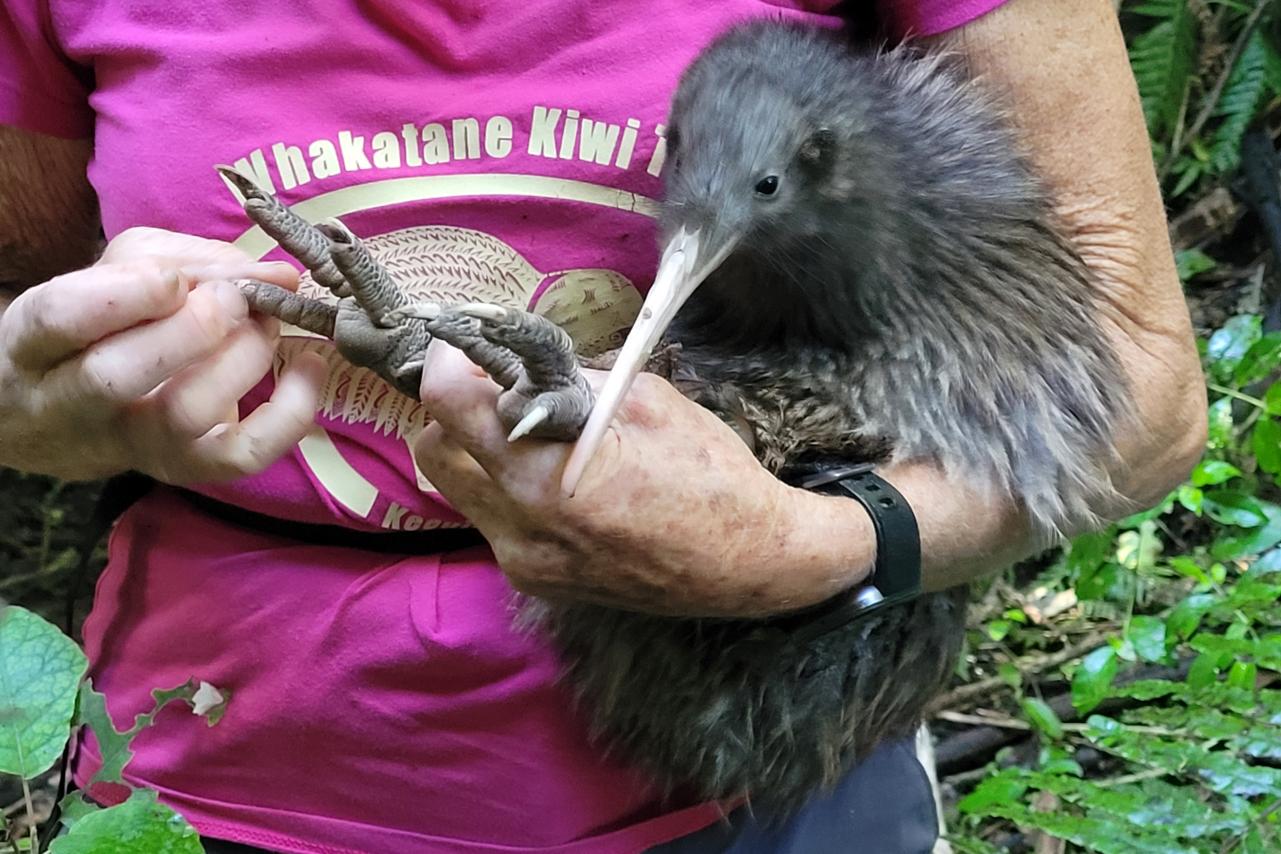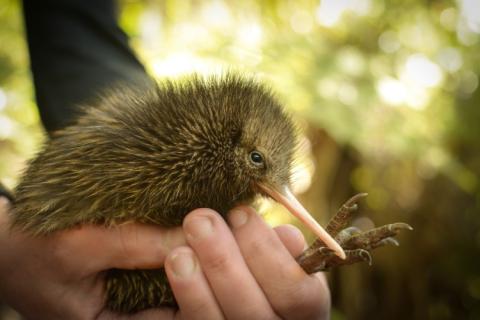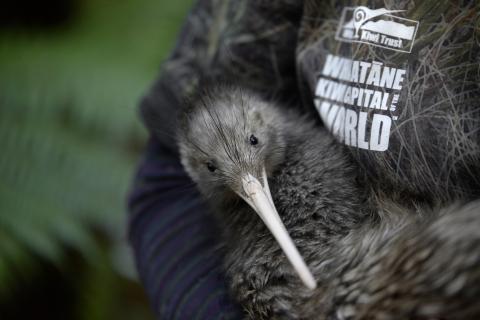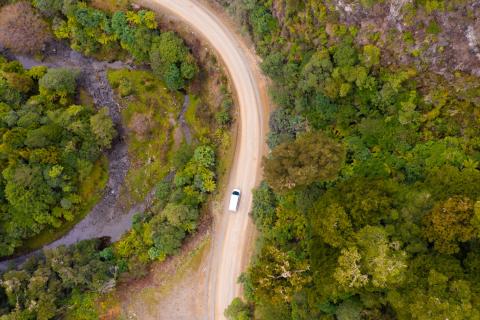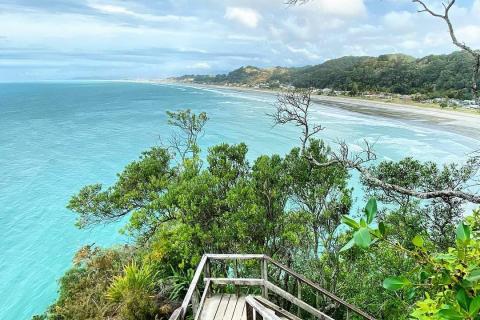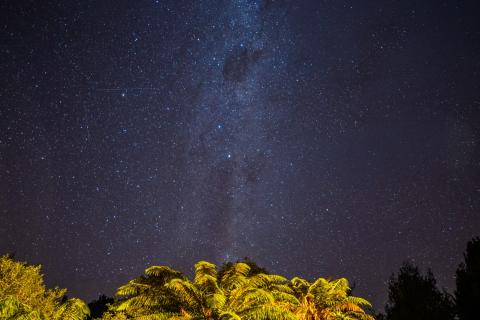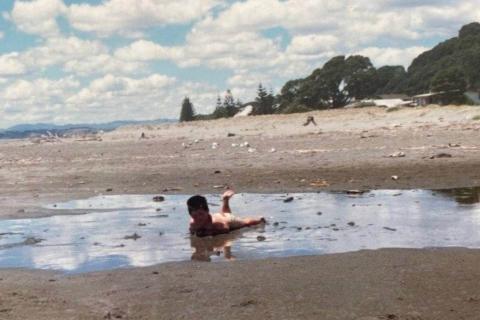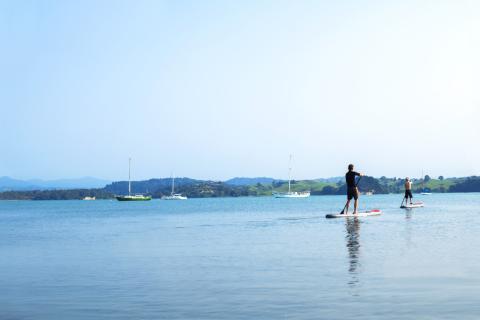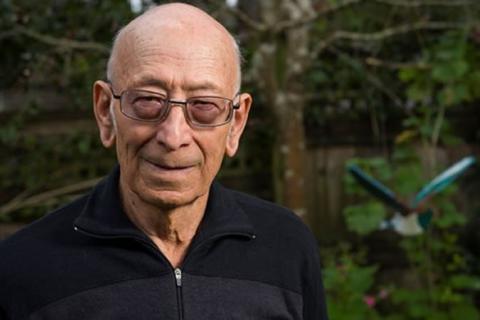Kia Ora, welcome to the new column from the Whakatāne Kiwi Trust! We’ll be writing this column every few months to bring you a roundup of all the news, projects, and events that the Kiwi Trust are currently involved with. Firstly though, we want to set the scene by sharing the incredible story of the Whakatāne Kiwi Project.
Most threatened species sanctuaries in New Zealand exist in offshore islands or inside predator-proof fences. The Whakatāne Kiwi Project is unique because it is within an unfenced, mainland sanctuary in the midst of an urban environment!
In 1999 four pairs of adult North Island brown kiwi were found unexpectedly in the Ōhope Scenic Reserve. The discovery of these kiwi prompted the development of the Whakatāne Kiwi Project, a partnership between the Bay of Plenty Regional Council (then Environment Bay of Plenty) and the Department of Conservation, in conjunction with Te Rūnanga o Ngāti Awa. Since then, the Whakatāne Kiwi Trust and the Whakatāne District Council have also become partners in the project.
Intensive predator control and monitoring of the birds began, with eggs being removed and hatched at Kiwi Encounter in Rotorua as part of the ’Operation Nest Egg’ programme. When chicks reached the predator safe weight of 1000gm they were returned and released back into the Whakatāne - Ōhope reserves. The first Operation Nest Egg chick was released back in the area in 2002. In more recent years the majority of local kiwi have been left to incubate and hatch their eggs in-situ.
Since 2000 the Whakatāne Kiwi Project has raised over 200 kiwi chicks and manages predator control over an area of around 3000ha. From a mere 8 adults in 1999, it’s astonishing to think that there are now at least 350 kiwi in the Whakatāne - Ōhope vicinity.
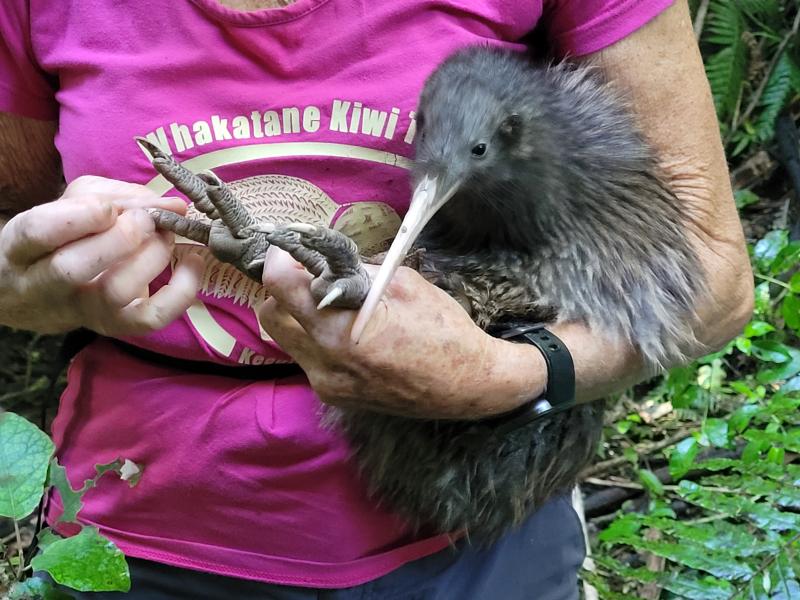
From humble beginnings the Whakatāne Kiwi Trust has extended its activities to embody a more holistic approach to improving biodiversity in the region. The Trust’s mission statement is Healthy Kiwi, Healthy Forest, Healthy Community, which recognises the inter-connectedness of a healthy environment, people and native species. Hence the Trust now manages programmes in predator control, education, public events, guided night walks, kiwi avoidance dog training, pest plant control, wasp control, as well as monitoring kiwi and other native species.
With over 100 active volunteers, contributing around 6000 hours of mahi every year, a large part of the Whakatāne Kiwi Trust’s focus is on supporting our wonderful volunteers. Being in an urban environment means we are fortunate to have local people and businesses keen to contribute their time, expertise and resources, resulting in a hugely successful community-led conservation project.
Join us to help protect Whakatāne’s incredible biodiversity:
- Keep your cat inside at night, and take your dog to a kiwi aversion training session
- Donate time or $, see our website for details: www.whakatanekiwi.org.nz
- Follow our facebook page and be amazed by how many kiwi are living in your backyard! www.facebook.com/whakatanekiwi
- Kōrero for Kiwi – join us for an entertaining evening of inspiring speakers, discussing topics from Antarctic Adventures to raising Kiwi Chicks. Bar, nibbles, raffles, entertainment – Friday 12th August at the War Memorial Hall. Tickets from: eventfinda.co.nz
Whakatāne Kiwi Trust - Healthy Kiwi, Healthy Forest, Healthy Community
